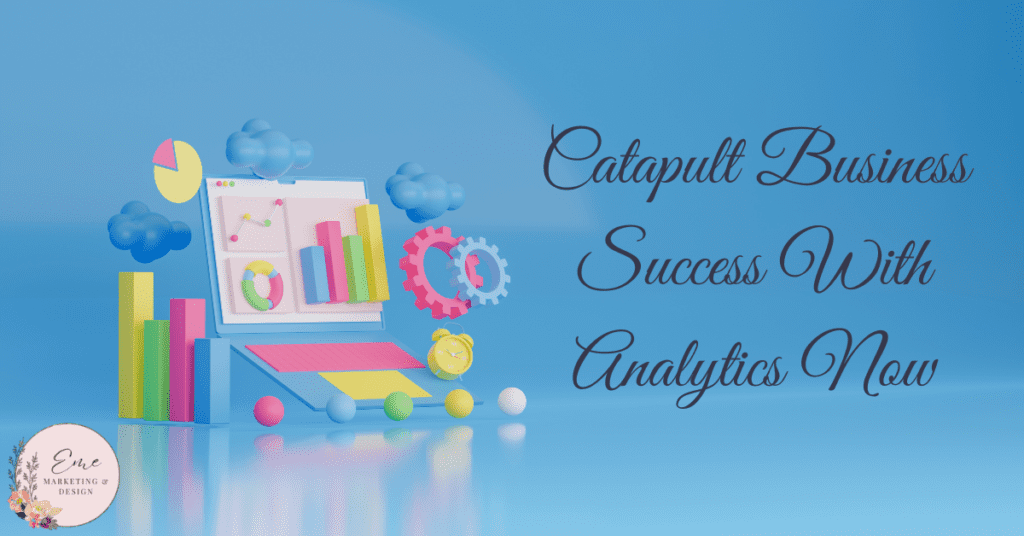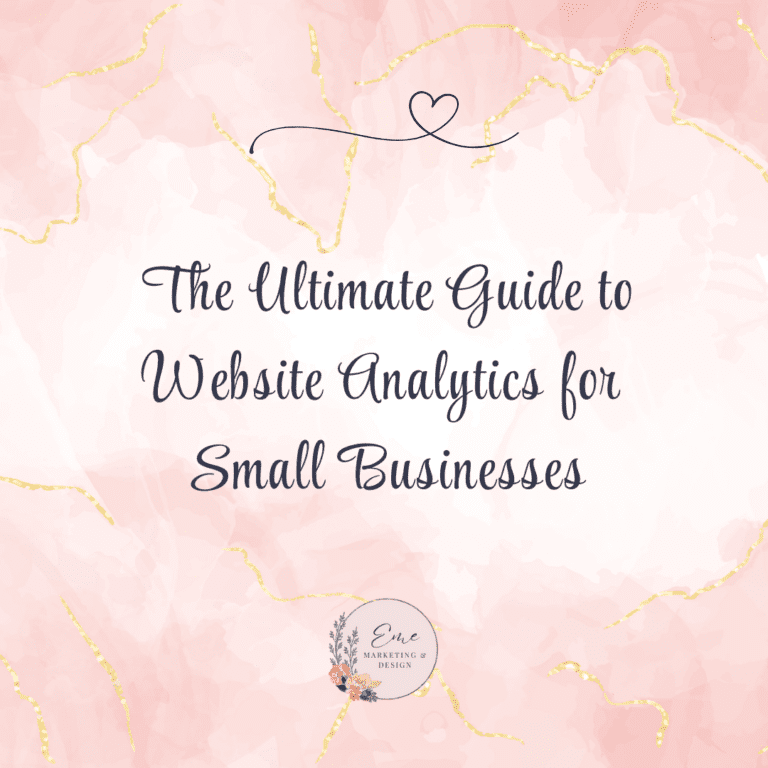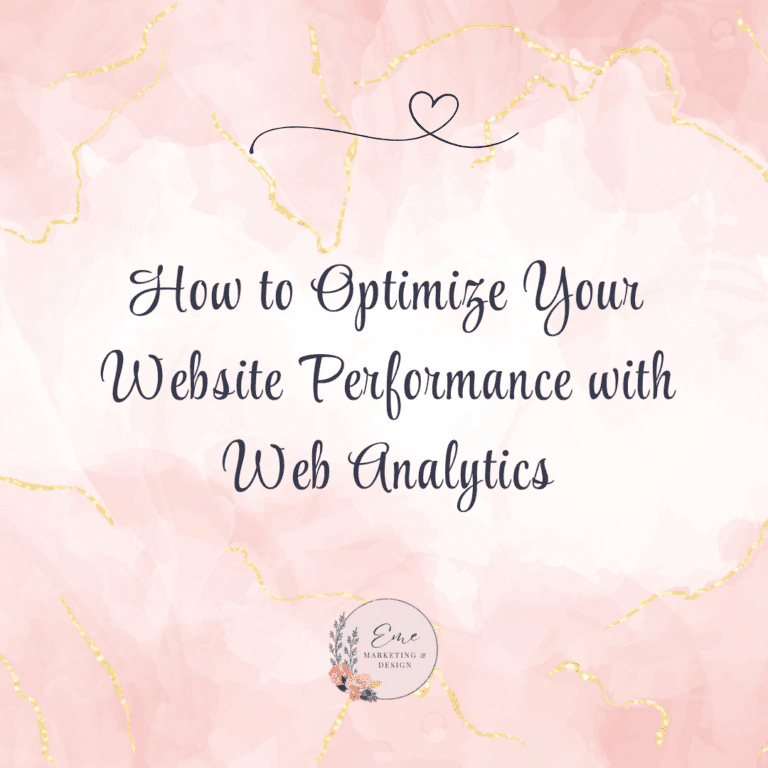
In today’s fast-paced and ever-evolving business landscape, small businesses face unique challenges that require them to be agile, resourceful and data-driven. One of the most powerful tools at their disposal is analytics. Leveraging analytics can transform how small businesses operate, enabling them to make informed decisions, optimize resources, and drive growth and profitability. In this blog post, we’ll explore why analytics are essential for small businesses and how they can harness their power to gain a competitive edge.
Understanding Business Analytics
Business analytics involves the systematic analysis of data to make informed business decisions. It encompasses various techniques, including statistical analysis, data mining, predictive modeling, and data visualization. The goal is to extract meaningful insights from data, which can then be used to guide strategic planning, operational improvements, and customer engagement efforts.
For small businesses, integrating analytics can seem daunting due to perceived costs and complexity. However, the benefits far outweigh the initial investment, making it an indispensable component of modern business strategy.
1. Informed Decision Making
One of the primary benefits of analytics is its ability to support informed decision-making. Small business owners often rely on intuition and experience when making decisions. While these qualities are valuable, data-driven insights can significantly enhance them. Analytics provides a factual basis for decisions, reducing the risk of errors and increasing the likelihood of success.
For example, by analyzing sales data, a small retail business can identify which products are most popular, which times of the year see the highest sales, and which marketing campaigns are most effective. This information allows the business to tailor its inventory, marketing strategies, and staffing levels to maximize profitability.
2. Customer Insights and Personalization
Understanding customers is crucial for any business, and analytics provides information about customer behavior and preferences. Small businesses can use customer data to segment their audience, identify trends, and personalize their offerings.
For instance, a small e-commerce store can analyze customer purchase history and browsing behavior to recommend products that interest individual customers. Personalized recommendations enhance the customer experience, leading to increased satisfaction and loyalty. Moreover, targeted marketing campaigns based on customer insights are more effective, yielding a higher return on investment.
3. Optimizing Operations
Efficient operations are vital for small businesses to remain competitive. Analytics can help identify inefficiencies, streamline processes, and optimize resource allocation. By analyzing operational data, companies can uncover bottlenecks, reduce waste, and improve productivity.
Consider a small manufacturing business that uses analytics to monitor production processes. The company can implement predictive maintenance strategies by analyzing data on machine performance, downtime, and maintenance schedules, minimizing unexpected breakdowns and maximizing uptime. This proactive approach leads to cost savings and improved operational efficiency.
4. Financial Performance and Forecasting
Financial health is the cornerstone of any business’s sustainability. Analytics plays a crucial role in monitoring financial performance and forecasting future trends. Small businesses can use financial analytics to track key performance indicators (KPIs), such as revenue, expenses, and profit margins.
Moreover, predictive analytics can help forecast future financial performance based on historical data and market trends. For example, a small service-based business can use analytics to predict seasonal fluctuations in demand, allowing it to adjust staffing levels and marketing efforts accordingly. Accurate financial forecasting enables better budgeting and strategic planning, reducing financial risks.
5. Competitive Advantage
In a competitive market, small businesses need every advantage they can get. Analytics provides a significant competitive edge by enabling enterprises to stay ahead of trends, identify opportunities, and respond swiftly to changes in the market.
By analyzing competitor data, market trends, and customer feedback, small businesses can identify gaps in the market and develop strategies to capitalize on them. For example, a small café can use social media analytics to monitor customer sentiment and identify emerging food trends. By being the first to introduce a trendy new menu item, the café can attract new customers and differentiate itself from competitors.
6. Enhancing Marketing Strategies
Effective marketing is essential for small businesses to attract and retain customers. Analytics can significantly enhance marketing strategies by providing insights into customer behavior, campaign performance, and market trends.
Marketing analytics allows businesses to track the effectiveness of different marketing channels, such as social media, email, and search engine advertising. By analyzing click-through rates, conversion rates, and customer engagement data, businesses can identify which channels deliver the best results and allocate their marketing budget more effectively.
Furthermore, analytics can help optimize marketing campaigns in real-time. For instance, a small business running an online ad campaign can use analytics to monitor its performance and make adjustments to maximize ROI. If specific keywords or demographics drive more conversions, the business can focus on those areas to achieve better results.
7. Enhancing Customer Experience
A superior customer experience is essential for building loyalty and driving repeat business. Analytics enables small businesses to understand their customers’ needs and preferences, allowing them to deliver personalized and relevant experiences.
For example, a small hotel can use guest feedback and booking data to identify areas for improvement and tailor its services to meet customer expectations. By analyzing data on guest preferences, the hotel can offer personalized recommendations for local attractions, dining options, and special promotions, enhancing the overall guest experience.
Moreover, analytics can help small businesses proactively address customer issues. By monitoring customer feedback on social media and review platforms, companies can identify potential problems and take corrective actions before they escalate. This proactive approach demonstrates a commitment to customer satisfaction and can lead to positive word-of-mouth referrals.
8. Streamlining Inventory Management
Effective inventory management is critical for small businesses to minimize costs and meet customer demand. Analytics provides valuable insights into inventory levels, turnover rates, and demand patterns, helping companies to optimize their inventory management processes.
For instance, a small retail store can use sales data to forecast demand for different products and adjust its inventory levels accordingly. By analyzing historical sales patterns, the store can identify peak seasons and ensure it has sufficient stock to meet customer demand. This approach reduces the risk of stockouts and overstocking, leading to cost savings and improved customer satisfaction.
9. Risk Management
Every business faces risks, and small businesses are no exception. Analytics can help identify potential risks and develop strategies to mitigate them. By analyzing market trends, customer behavior and operational performance, businesses can identify areas of vulnerability and take proactive measures to address them.
For example, a small financial services firm can use analytics to monitor market conditions and assess the risk of different investment strategies. By analyzing historical data and market indicators, the firm can develop risk management strategies that protect their clients’ investments and minimize potential losses.
10. Scalability and Growth
As small businesses grow, they need scalable solutions to manage increased complexity and demand. Analytics provides the foundation for scalable growth by enabling companies to identify growth opportunities and make data-driven decisions.
For instance, a small technology startup can use analytics to track user engagement and identify features that drive customer satisfaction. By analyzing user data, the startup can prioritize product development efforts and allocate resources to areas with the most significant impact on growth. This data-driven approach ensures that the business can scale efficiently and effectively.
Implementing Analytics in Small Businesses
While the benefits of analytics are clear, implementing an effective analytics strategy can be challenging for small businesses with limited resources. Here are some steps to get started:
- Define Objectives: Clearly define your business objectives and identify the key questions you want to answer with data. This will guide your analytics efforts and ensure you focus on the most relevant insights.
- Collect Data: Gather data from various sources, such as sales transactions, customer interactions, marketing campaigns, and operational processes. Ensure that your data is accurate, complete, and consistent.
- Choose the Right Tools: Select analytics tools suitable for your business needs and budget. Many affordable and user-friendly platforms are available, such as Google Analytics, Tableau and Power BI.
- Analyze Data: Use statistical analysis, data visualization, and predictive modeling techniques to analyze your data and extract meaningful insights. If you need more in-house expertise, consider working with a data analyst or consultant.
- Act on Insights: Use the insights gained from your analysis to make informed decisions and implement changes in your business processes. Monitor the impact of these changes and adjust your strategies as needed.
- Continuously Improve: Analytics is an ongoing process. Monitor your data continuously, track key performance indicators and refine your analytics strategy to stay ahead of the competition and drive growth.
Conclusion
In conclusion, analytics is essential for small businesses looking to thrive in a competitive market. By leveraging data-driven insights, small businesses can make informed decisions, optimize operations, enhance customer experiences, and drive growth. While implementing analytics may require an initial investment, the long-term benefits outweigh the costs. By embracing analytics, small businesses can unlock new opportunities, mitigate risks and achieve sustainable success.
Unlock the Power of Knowledge:
Explore Our Resource Area and Analytics Blog
At Eme Marketing & Design, we believe in empowering businesses with knowledge and insights. Our resource area is a hub where you can find information to enhance your marketing strategies. We are building detailed guides and eBooks to informative webinars and case studies, our resources cover a wide range of topics tailored to your needs. Specifically, our blog category on Analytics is a must-visit for anyone looking to deepen their understanding of digital marketing analytics. Here, you’ll find expert articles, how-to guides, and the latest trends in analytics, all designed to help you make data-driven decisions. Whether you’re a novice or an experienced marketer, our Analytics blog provides the tools and knowledge to leverage data effectively and drive your business success.




